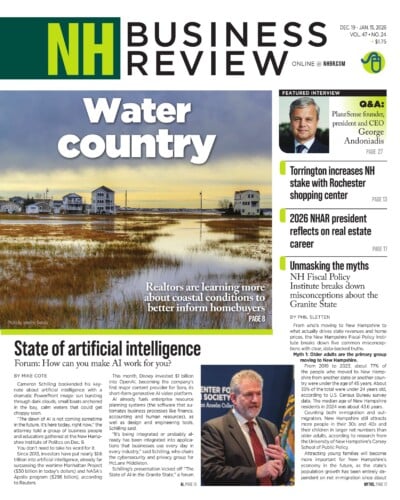
Karen Shapiro
In an era marked by climate change, resource scarcity and growing social awareness, sustainable investing has emerged as a powerful strategy that aligns financial goals with environmental and social responsibility.
More than just a trend, it represents a fundamental shift in how individuals and institutions approach wealth creation and long-term value. As investors increasingly seek to make a positive impact while earning competitive returns, sustainable investing is becoming a cornerstone of modern portfolio management.
What is sustainable investing?
Sustainable investing, often referred to as ESG (environmental, social and governance) investing, expands the traditional investing framework by incorporating nonfinancial metrics.
These metrics provide a broader view of a company’s overall performance and long-term viability. For example, a company’s environmental impact may include greenhouse gas emissions, toxic releases, water usage and deforestation resulting from land-use practices.
The “S” in ESG represents social factors — how a company treats its employees, customers and communities. This includes labor practices, human rights compliance, and health and safety records. Lastly, “G” stands for governance, which encompasses executive compensation, board independence, transparency and diversity.
By evaluating these ESG factors, investors can better assess a company’s risk profile and resilience. A firm with strong governance and a commitment to sustainability is often better positioned to navigate regulatory changes, reputational risks and shifting consumer preferences.
The growth and controversy around ESG
Sustainable investing reached a new milestone in 2024, totaling $6.5 trillion and representing 12% of the U.S. investment market. This growth reflects increasing interest from both institutional and individual investors, including demand for ESG options in retirement plans like 401(k)s.
However, not everyone supports this shift. In 2023, Gov. Chris Sununu signed an executive order requiring New Hampshire Executive Branch agencies to exclude ESG criteria from investment decisions, citing concerns that ESG-based investments yield lower returns than those based solely on financial metrics.
This perspective, however, is increasingly challenged by data. Numerous studies show that ESG-focused portfolios often perform as well as — or better than — traditional ones. Companies that prioritize sustainability tend to be more resilient, better managed and more forward-thinking. They are less likely to face regulatory fines, reputational damage, or operational disruptions due to environmental or social issues.
Why ESG matters for long-term investors
Sustainable investments can also reduce long-term risk. Companies with proactive ESG strategies are better prepared for future regulations and less likely to face legal penalties. By investing in industries with future-oriented strategies — such as renewable energy, clean technology and ethical supply chains — investors can protect and grow their wealth over time.
One of the most compelling reasons to embrace sustainable investing is its potential to drive positive change. By channeling capital into companies that prioritize environmental stewardship and social equity, investors help accelerate the transition to a low-carbon, inclusive economy.
A smart move for employers
If you care about attracting and retaining talent, offering ESG options is essential. Younger employees increasingly value ethical investing, and providing these options demonstrates your commitment to corporate responsibility while enhancing your public image. In today’s competitive job market, offering benefits that align with employee values is not just smart, it’s essential.
Employees who feel their employer shares their values are more engaged, more productive and more likely to stay long-term.
In an era where talent is your most valuable asset, ESG options can be a differentiator that sets you apart from competitors and positions your organization as forward-thinking and socially conscious.
Karen Shapiro is a financial advisor at Green Future Wealth Management, where she collaborates with individuals, families and small businesses to create values-based financial plans. New Hampshire Businesses for Social Responsibility produces “Sustainability Spotlight” monthly for NH Business Review.















